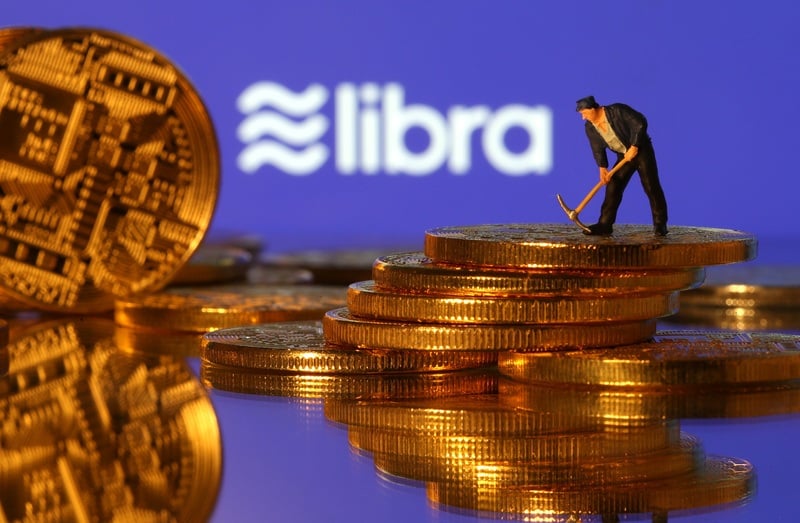Why Didn’t Facebook Just Build Libra on Ethereum?

Facebook could have just built Libra on Ethereum, EOS, or even - as was rumored - a fork of Stellar. So why didn't it? | Source: Shutterstock. Image Edited by CCN.com.
People may wonder why Facebook has chosen to build their Libra blockchain network from scratch, rather than building on an existing giant like Ethereum, EOS, or even – as was rumored – Stellar. The answer is simple and sophisticated at the same time, depending on how deep into it you want to look.
Facebook Wanted Better Scaling and More Control Than Ethereum Offers
On the surface, it’s simple enough: Facebook wants more control than using an existing decentralized network like Ethereum would allow, necessarily wanting to have the ability to reverse transactions in accordance with financial regulations.
This is an important distinction for the product that Facebook’s working on, as opposed to cryptocurrencies. Even Ripple (XRP) doesn’t offer this type of control to its network participants, but Facebook was recently told that it’s “critical” they find some way to handle undesirable transactions.
That’s the first reason.

The next reason is that Ethereum may not have the scale that Facebook, even as a brand new crypto project, will require.
Ethereum’s scaling has become such a problem that Vitalik Buterin recently floated the idea of utilizing Bitcoin Cash’s ample space.
Therefore, Facebook needs something that can reliably handle more transactions per second. It’s that simple. You can’t offer something to 2 billion people and then only process a handful of payments at a time. You need to be able to handle potentially millions of transactions per second at that scale.
If Facebook had chosen another platform to build Libra on, it would have created real demand for that chain. EOS and Tron both have steady, significant demand for their decentralized application ecosystems, but if either had been selected by Facebook, it would have changed things significantly. Demand for the base token would be real.
But would that have added unnecessary costs to the transactions on the network?
Facebook’s Global Payments Network
In talks with lawmakers in Washington, DC, Libra chief David Marcus has repeatedly said that every effort is being taken to minimize the cost of transactions on the network. As such, building your own blockchain might make transactions cheaper in the long run – especially if Ethereum fails to hit scaling milestones.
Facebook chose a basic architecture, not unlike an existing product, but even then, they chose to avoid the added costs of using an already-built system. The other side of this is self-evident: to be sure that you can handle the sheer volume of transactions you can expect, it’s wise to build your own concept out.
Of course, Facebook has yet to comment on the reason it chose to build its own chain rather than using an existing platform like Ethereum. In its whitepaper , Facebook says:
“The Libra Blockchain is designed from the ground up to holistically address these requirements and build on the learnings from existing projects and research — a combination of innovative approaches and well- understood techniques.”
The decision by Facebook to create their own blockchain is not unlike JP Morgan’s decision to do the same. It demonstrates that with cryptocurrency and open source, there will always be another option: build your own.